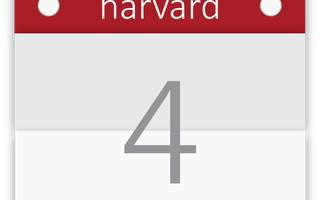Author Darryl Pinckney and Kennedy School of Government professor Alex Keyssar pointed out that voter suppression still takes place in contemporary politics during a discussion at the Kennedy School’s Ash Center Monday. In the forum, Keyssar and Pinckney focused on Pinckney’s recent book, “Blackballed: The Black Vote and US Democracy.”
In “Blackballed,” Pinckney explores the disenfranchisement and political exclusion of African Americans throughout American history and obstacles that groups may face in pursuit of the right to vote. Keyssar, who teaches history at the Kennedy School, gave the examples of new voter ID laws, the shortening of early voting periods on weekends, and the disallowance of third-party voter registration as ways in which voters are suppressed in modern-day United States.
“This wave of voter suppression is a reaction to events that have taken place over the previous half-century: the acquisition of political power by African Americans in the South and the very large waves of immigration in the last 30 years,” Keyssar said.
{shortcode-336077b3d19d7dfef8a5a85549dd2a157fbbc759}
Keyssar also expressed praise for Pinckney’s book, calling it a “meditative essay on the meaning of the black vote, disenfranchisement, and about what that says about American democracy.”
Pinckney, who has written several other books commemorating black history, such as “High Cotton” and “Out There: Mavericks of Black Literature,” also shared some of the reasons that he wrote his newest book.
“I wrote this book as an apology to my parents for my arrogance,” Pinckney said. “I found conversations [about black history] to be tiring and always about discrimination, but I see now that it was about the need for justice.”
Pinckney said that his book was written not only to document the history of discrimination against black voters in the South before the passage of the Voting Rights Act, but also to attempt to navigate the state of voting rights today.
Amid some restrictive voting rights regulations on the books today, Pinckney said, blacks have continued to fight for political sway.
“One of the things that makes the black vote so important is that it is huge, overwhelming, passionate, and tends to be democratic,” Pinckney said.
Keyssar and Pinckney concluded their discussion by sharing their thoughts on the current state of affairs in the nation’s capital and what the future holds for America after the Barack Obama administration.
Read more in University News
Hilfiger Recounts Business Obstacles, Successes













